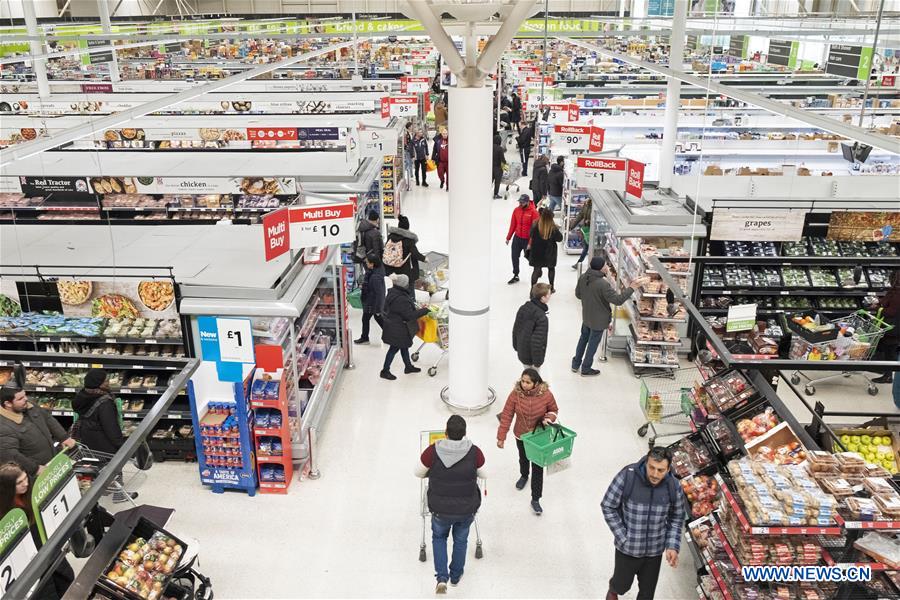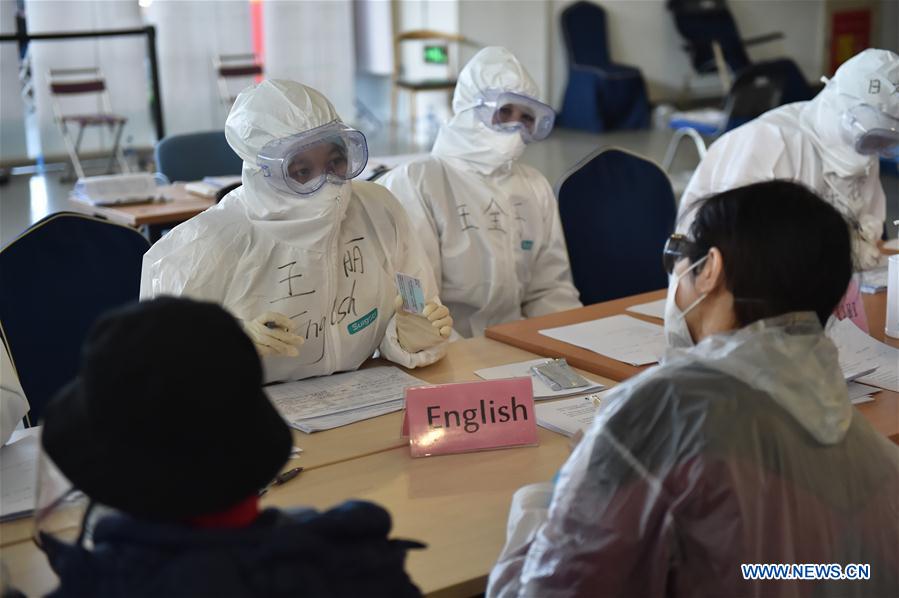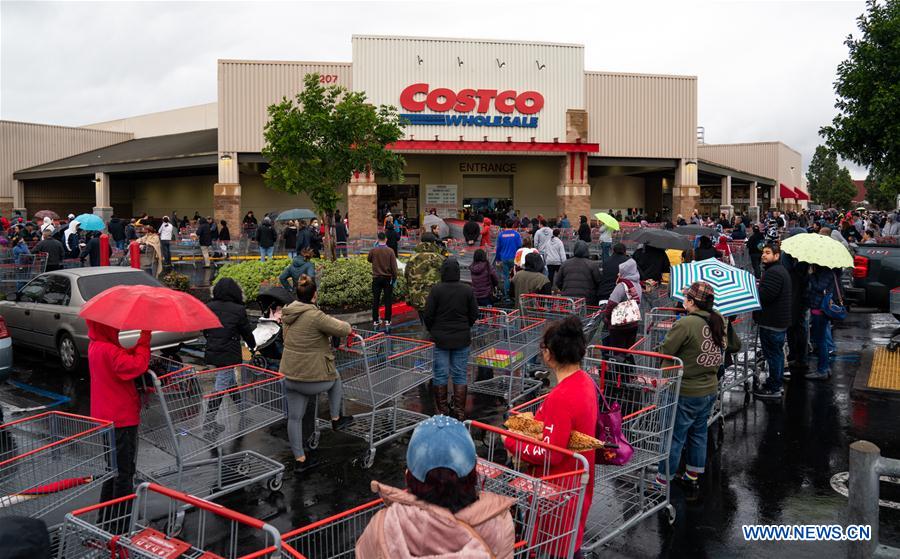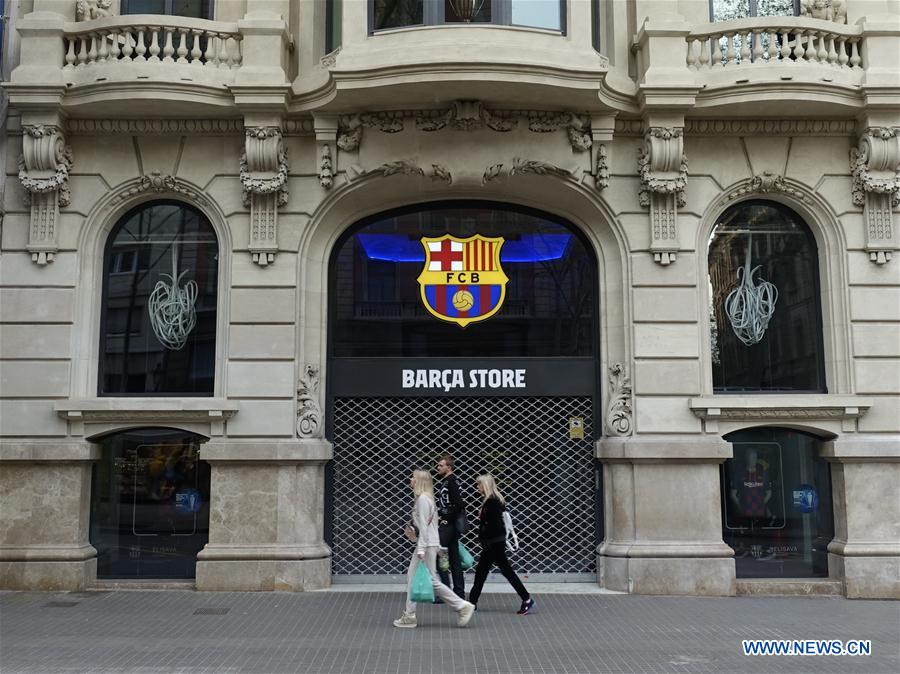
People buy daily necessities at a supermarket in London, Britain on March 15, 2020. The novel coronavirus death toll has reached 21 as of Saturday in Britain as the number of confirmed cases totalled 1,140, according to the latest figures released by the British Department of Health and Social Care. (Xinhua)
LONDON, March 14 -- The novel coronavirus death toll has reached 21 as of Saturday in Britain as the number of confirmed cases totalled 1,140, according to the latest figures released by the British Department of Health and Social Care.
The new figures showed an increase of 342 confirmed COVID-19 cases in Britain, the largest rise on a single day since the start of the outbreak in the country. Ten more patients who contracted coronavirus died, bringing the death toll in Britain to 21.
All the 10 patients who died were aged over 60 and had underlying health conditions, said Chris Whitty, chief medical officer for England.
According to health authorities, most of the cases are in England. There have been 121 confirmed cases in Scotland, 60 in Wales and 34 in Northern Ireland.
The British government said on Friday that it estimated the true number of infected cases in Britain to be around 5,000 to 10,000. People who are self-isolating with mild symptoms are no longer being tested for the virus.
"I understand this increase in the number of deaths linked to COVID-19 will be a cause for concern for many," Witty said.
Whitty urged those with a cough or high temperature to stay at home for seven days in a bid to stop the spread of the virus. "The public should know every measure we are taking is seeking to save lives and protect the most vulnerable," he said.
The British government announced Thursday that the country has switched from the "containment" phase to "delay" in response to the spread of virus, a move to encourage more "social distancing" among the British people.
Describing the threat of coronavirus as "the worst public health crisis in a generation," Prime Minister Boris Johnson has said that "it is going to spread further" and warned the British public to prepare to "lose loved ones before their time."
While countries across Europe have shut schools, sporting events and even restaurants and bars, Johnson has so far largely kept Britain open, opting for more targeted measures like asking people with respiratory symptoms to stay home.
That strategy has raised concerns among some epidemiologists, drawn criticism from former British Health Secretary Jeremy Hunt who urged more aggressive measures to tackle the virus.
The British government is mulling emergency laws to be announced next week, which will allow police to detain people "for a limited period" if they are suspected to be infected with the virus, the English newspaper Times reported Saturday.
The government will be able to halt "any vehicles, train, vessel or aircraft," and to order schools to stay open if they are deemed to be unnecessarily closed and close them during pandemic peaks, according to the newspaper.
Johnson is also expected to ban mass gathering of more than 500 people, including football matches, concerts and festivals, the newspapers added.
Over 142,000 petitioners have called for the British government to implement a lockdown as of Saturday to prevent the virus from fast spreading. The number of petitioners on the UK Government and Parliament Petitions webpage is still increasing.
The petition said that country needs to "follow suit the containment procedures of countries that have been greatly affected by COVID-19 such as Italy."
The country should restrict unnecessary travel between towns and cities, it said, adding that travel permitted should only be for work or emergencies.













